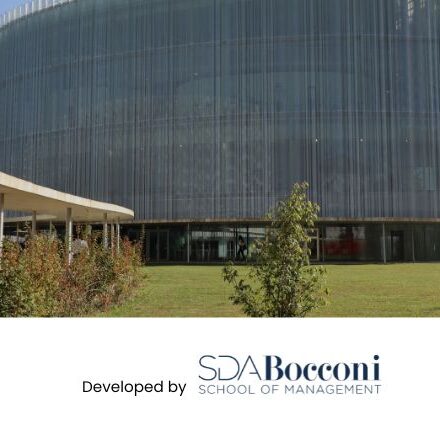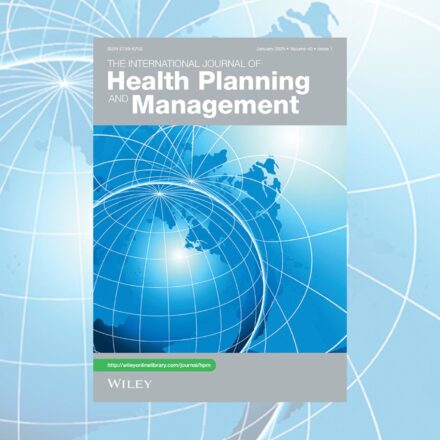This website uses cookies so that we can provide you with the best user experience possible. Cookie information is stored in your browser and performs functions such as recognising you when you return to our website and helping our team to understand which sections of the website you find most interesting and useful.
EHMA 2024 Conference Report: Shaping the Future of Health Management
3 October 2024
The EHMA 2024 Conference Report captures the insights and key takeaways from the 29th European Health Management Conference, held in Bucharest, Romania. Over 400 participants from 45 countries gathered to discuss innovative solutions to Europe’s most pressing health management challenges. The report highlights essential sessions and recurring themes that focus on driving collaboration, innovation, and resilience in healthcare systems across Europe.
The conference’s theme, ‘Shaping and Managing Innovative Health Ecosystems’, sets the tone for exploring how digital transformation, sustainability, and workforce development can strengthen healthcare. Through cross-sector dialogue, healthcare managers, professionals, policymakers, and researchers worked together to address the evolving needs of health systems in a rapidly changing world.
The report provides a comprehensive overview of the conference discussions, which spanned 48 sessions and involved over 200 speakers. The focus was on finding practical ways to translate research into actionable solutions, with an emphasis on improving patient outcomes and system efficiency.
Plenary Sessions: Tackling Key Healthcare Challenges
The conference featured three major plenary sessions that provided a deep dive into critical healthcare issues.
The first, ‘Health Inequalities in 2030: Anticipating Scenarios and Solutions’, explored future health disparities and strategies to create a fairer, healthier society. Through a series of foresight-driven insights, the session highlighted the importance of addressing socioeconomic factors to reduce health inequities, guiding participants toward solutions that can bridge these gaps.
In ‘What to Finance First? Prioritising Investments and Spending’, participants examined the complex challenge of balancing healthcare investments. This plenary brought together national health authorities, insurers, and health professionals to discuss how to make strategic spending decisions, with a particular focus on lessons learned from Romania, and comparing them to the experiences of other countries.
The final plenary, ‘Innovating Service Delivery: The Challenge of Transformation’, focused on how innovation can reshape health systems to meet modern demands. Stakeholders from various sectors shared examples of successful transformations, focusing on digital solutions, workforce optimisation, and the integration of advanced therapies to improve healthcare delivery.
Innovative Health Ecosystems: A Collaborative Approach
Throughout the conference, sessions explored the concept of an ‘ecosystem approach’ to healthcare — one that brings together different stakeholders to address challenges collectively. Discussions covered a range of critical topics, from addressing disparities in healthcare access to rethinking service delivery models to better meet modern healthcare needs.
The overarching theme was clear: collaboration is essential. By combining expertise from healthcare professionals, policymakers, and industry leaders, the conference underscored the need for unified strategies that foster innovation and enhance system resilience.
Conference Highlights: Addressing Health Challenges with Innovation
Several sessions tackled the challenge of future-proofing healthcare systems by focusing on leadership, digital transformation, and workforce development. Discussions highlighted the critical need to improve access to advanced treatments across regions, urging for policy reforms and targeted investments. Another key topic was the role of preventative care in reducing the burden on healthcare systems, especially as Europe’s population continues to age.
The importance of equipping healthcare professionals with new skills to navigate the digital and green transitions was also emphasised. Sessions focused on how to enhance workforce capabilities to better manage the evolving healthcare landscape. The integration of digital health technologies and artificial intelligence featured prominently, with participants exploring how these innovations can revolutionise patient care, enhance communication, and improve the efficiency of health systems.
Looking Forward: Building Resilient Healthcare Systems
EHMA 2024 set a forward-looking agenda for the future of healthcare management. The conference highlighted the need for a multi-stakeholder approach to tackling emerging healthcare challenges and improving health system resilience. Collaboration, innovation, and workforce development emerged as key pillars for driving meaningful change.
As Europe faces evolving healthcare needs, the insights from EHMA 2024 will help shape policies and practices that ensure healthcare systems are sustainable, patient-centred, and equipped for the future.
To dive deeper into these discussions and explore actionable insights for the future of healthcare management, read the full EHMA 2024 Conference Report.
Recent News

Enhancing Health Management: SDA Bocconi School of Management Self-Learning Modules Successfully Concluded

EHMA joins EU4Health Civil Society Alliance in expressing concerns over restrictions on civil society funding

New article published: ‘Defining Health Management: A Conceptual Foundation for Excellence Through Efficiency, Sustainability and Equity’
What our Members say
I have been active in EHMA since the first years of the '90s and I have seen its evolution from a small association of members interested in sharing knowledge on health management practices to the current status of reference and advisory key player for EU, health systems and organisations, stakeholders associations, industry and universities. EHMA is now a unique knowledge hub, policy advisor, community of practice and network of best in class organisations involved in health policy and management. A place where health managers can build their competences, policy-makers and stakeholder associations envision how to implement and sustain change through health management, industry leaders understand how to engage more effectively with health organisations and systems. The right place to nurture and grow health management capabilities and capacity for every stakeholder of health systems.
Prof. Federico Lega, University of Milan, Italy
Health management has a crucial function in shaping public health and health system challenges. The Medical University of Varna, Bulgaria had success in collaborating with EHMA on EU-funded projects that has resourced us to create new health management competencies for the future workforce. In addition to all classical definitions, health management is a science dealing with individuals, groups, and society at large. It is an art contributing to the beauty of our lives and an interactive communication process at all levels of institutions and human energy. I have also had the pleasure to chair the South Eastern European Special Interest Group which gives members a space to discuss and tools to address how health systems are managed in our regions.
Prof. Todorka Kostadinova, Medical University of Varna, Bulgaria
I enjoy the high level of interaction and engagement in EHMA’s activities, in particular during the annual conference where the panel discussions are rich and well prepared. As a hospital manager and professor of health management, EHMA motivates and inspires me to be creative. You go back home feeling energised from seeing old friends and making new connections, as well as being convinced of serving as EHMA’s ambassador. It’s a strong feeling of interdisciplinary engagement, but it also feels like being part of family-like community.
Prof. Sandra C. Buttigieg, University of Malta, Malta
EHMA is a pre-eminent organisation for everyone working in planning, managing and delivering health services across Europe. As a long standing member of EHMA I have always been impressed by the vibrant community of managers, researchers and academics it has created and by the many opportunities for sharing knowledge and funding opportunities it has brought to its members. Its international scope is impressive and its impact is often felt in management and research across European and national health systems.
Prof. Axel Kaehne, Edge Hill University, UK
Health workforce has become more essential in operating, managing and maintaining health systems lately, particularly in crisis and emergency situations. European healthcare professions and the workforce need to be high on the agenda of managers and decision makers. The Health Services Management Training Centre, Semmelweis University in Hungary is a longstanding EHMA member, because it connects us with collaborators and experts, with whom we can have complex debates, from whom we can learn and at the end find solutions in various challenging fields of healthcare management.
Dr Eszter Kovács, Health Services Management Training Centre, Semmelweis University, Hungary
As a hospital administrator and health management professor, I see on a daily basis that the healthcare challenges require talented and skilled managers to transform it. the EHMA membership has been beneficial to bring healthcare management research and education to the demanding healthcare services world, promoting healthcare management competencies and knowledge creation.
Dr Alexandre Lourenco, APAH - Association of Portuguese Hospital Managers, Portugal
Many healthcare systems in Europe and beyond are facing similar challenges which require innovative and creative solutions. EHMA’s annual conference, webinars, Programme Directors’ group and other activities and resources provide incredible opportunities for networking, connecting and sharing experiences. A distinct feature of EHMA is the diversity of members with representation from many countries, sectors and different communities of practice – academic, policy-makers, practitioners, managers, leaders and students. The annual conference is a highlight in the calendar year, offering a friendly, fun and learningful environment for emerging and established members to engage, collaborate and meet up with old and new friends. I am proud to be a member of the EHMA Board.
Prof. Ann Mahon, University of Manchester, UK
Society evolution, pandemics and ageing modify health needs. So, health policies and services are to change dramatically. EHMA, through webinars, workshops and annual conference provides an excellent insight to a professional changing world, favouring closeness to management innovation and the protagonists of these changes. As a primary care services’ manager, participating in EHMA activities is really worth it and allows to involve oneself in the innovation processes.
Dr Antoni Peris Grao, Consorci Castelldefels Agents de Salut (CASAP), Spain